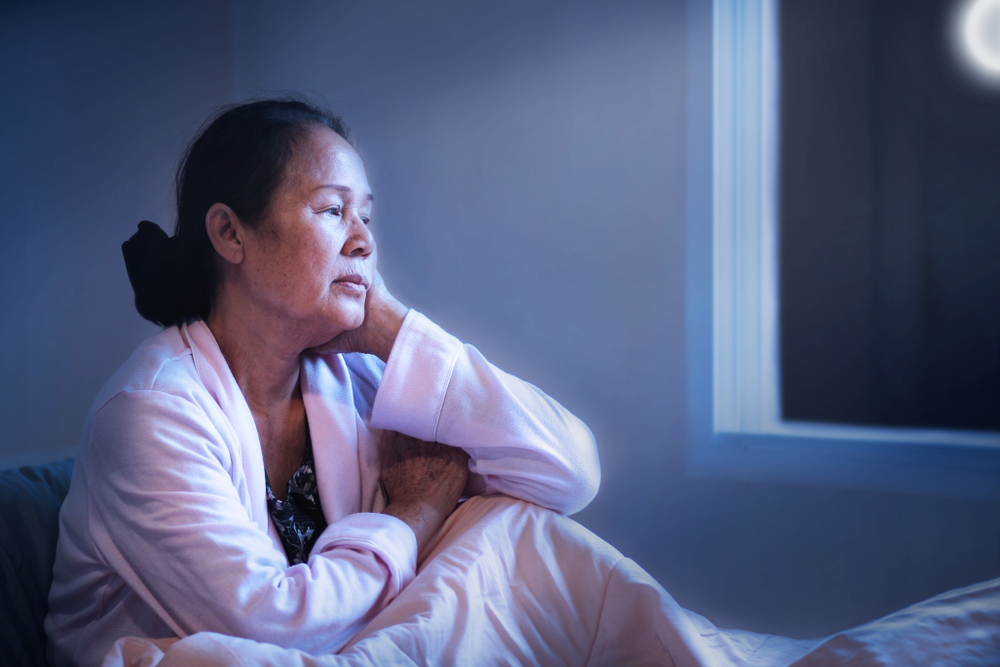Elderly Sleep Disorders: Sleepless Nights, Impossible Days
Category:

We all know how grumpy we can feel when we don’t get enough sleep. It’s even worse when the difficulty sleeping is chronic and happens night after night.
Sleep disorders in seniors are especially common, as sleep can be affected by many different diseases and medications.
Download Our FREE Guide to Around-the-Clock Care
Sleep and the Elderly
If you are a caregiver or live with an elderly person, you may find yourself wondering, “why do old people sleep a lot?” It feels like many people who are elderly can’t sleep at night. While it is true sleep patterns change as we age, it is not normal to become unable to sleep at night.
A person who is elderly sleeping too much during the day is most likely struggling with some sort of sleep disorder. A sleep disorder can include difficulty falling or staying asleep, sleeping too much, or other abnormal sleeping patterns. Some of the most common causes of elderly sleep disorders are:
- Alzheimer disease
- Alcohol
- Chronic conditions like heart failure
- Certain medications and supplements
- Depression
- Pain from conditions like arthritis
- Frequently needing to urinate at night
Not being able to sleep and rest during the night could lead to a person who is elderly sleeping a lot during the day. This can be very frustrating for you as a caregiver or family member. Your loved one may fall asleep during meals or during activities you want to enjoy with them. They may become moody or anxious because they are tired. They may want you to be awake during the night with them when they are unable to sleep. It is a difficult situation for everyone involved.
Speaking with a medical professional can provide some insight into and support with sleep challenges. They may be able to provide medication to help alleviate pain or control frequent urination.
Some other ways to promote healthy sleeping habits include:
- Avoid large meals before bedtime.
- Avoid caffeine and other stimulants within 3 to 4 hours of bedtime.
- Go to bed and wake up at the same time each day.
- Try not to nap during the day.
- Do not watch television or use devices like phones or tablets in the bedroom – especially once it is dark in the room.
If you do not fall asleep within twenty minutes, get up and do a quiet activity. Walk around the room a few times. Read a book or listen to music. It allows your brain and body to reset and avoids the frustration of laying in bed unable to sleep.
Be mindful of using sleeping pills, even those you can get over the counter. Using sleeping pills too often can lead to a dependence or other problems. If you feel your loved one would benefit from sleeping pills, speak to their healthcare provider for more information and to find out what will work best for them.
Sleep disorders often improve with treatment once the underlying cause is determined. While it can be very frustrating, remember that it is not just a normal part of aging and help is out there.
To learn about our home care services, contact our caregiving team today at 1-800-GRISWOLD or find a Caregiver near you.
Subscribe
Date: 2024-11-14
Category:


